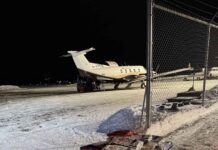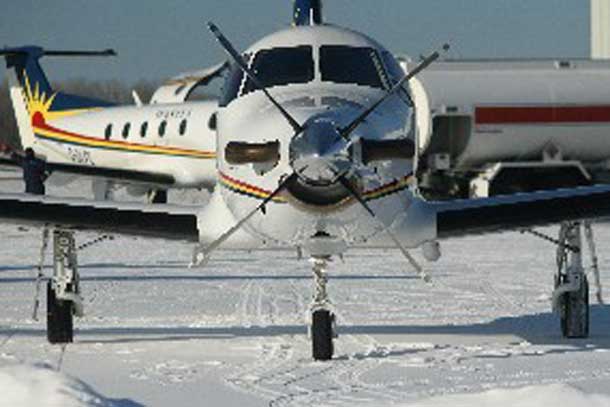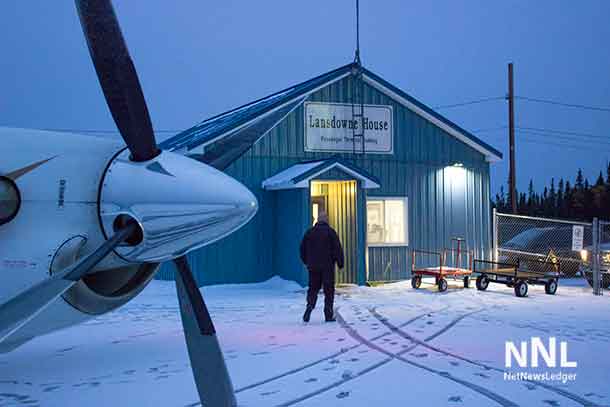
North Star Air Flex Flight Travel
THUNDER BAY – AVIATION – North Star Air operates a Flex Flight system for northern air travel. The passenger side of this Northern Ontario owned and operated airline has a schedule that is based on passenger demand rather than a fixed schedule.
That gives North Star Air the flexibility to ensure that maximum capacities are reached on their flights. From a business side, it ensures that the airline is able to operate on a profit model.
A little like an advanced taxi service, the North Star Air Flex Flights along with charter service allow for passengers to get to their destinations – along with their baggage – in a timely manner.
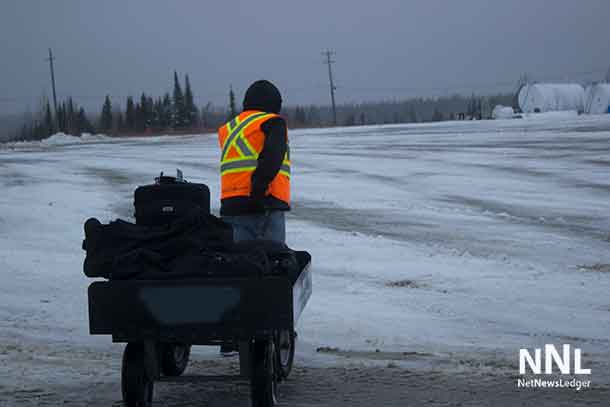
Flying out from Thunder Bay the Flex Flight program can be a little like the proverbial milk run.
On a recent Flex Flight trip from Thunder Bay to Kasabonika Lake First Nation, North Star Air delivered crew who are set to run safety simulations and training at the Airport in the First Nation community located just over ninety minutes north of Thunder Bay.
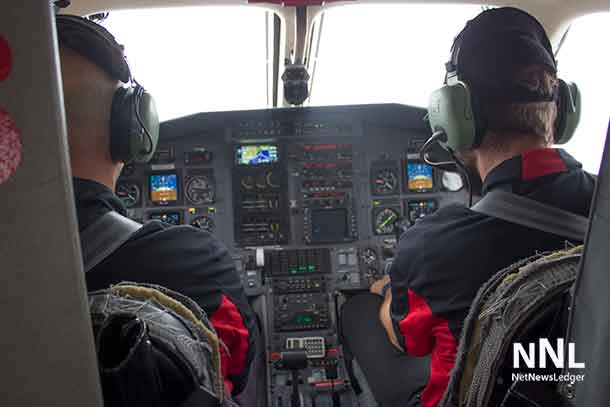
The flight plan logged 758 Nautical Miles or 1403 kilometres. From Thunder Bay to Kasabonika Lake is 359 nm, from Kasabonika Lake to Webiquie another 67 nm, from Webiquie to Landsdowne House 60 nm, and then on to Thunder Bay another 272nm. A nautical mile is 1.85 kilometres.
North Star has just added Kasabonika Lake First Nation to the growing number of communities served.
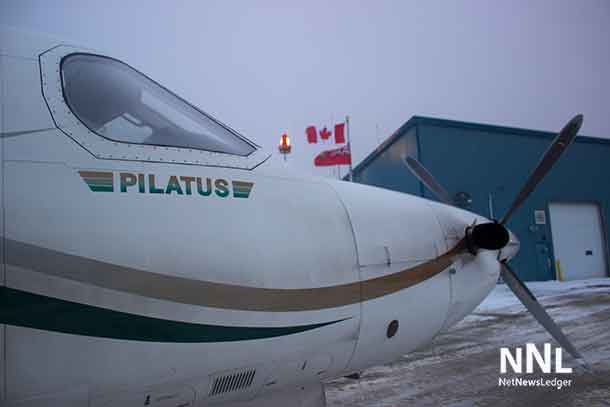
From Kasabonika Lake, the crew started working back south, the Pilatus PC 12 made stops in Webiquie First Nation as well as Landsdowne House before heading back to Thunder Bay with a full load of passengers.
Flight times between the communities of Kasabonika Lake and Webiquie are about 15 minutes, and then another eighteen-minute flight to Landsdowne. The inter-community flights reach altitudes of about 7000 feet.
The trip to Thunder Bay gets up higher with altitudes over 22,000 feet. The higher altitudes offer smoother air.
The round trip takes a total of (departed at 4:30PM and arrived back in YQT at 9:30 PM) five hours.
As winter draws ever nearer this year snow has come early for most of the north. Weather impacts northern air operations greatly. For one shorter daylight hours impact some flight operations. Winter storms and low cloud ceilings can impact flights causing delays and cancelations. That leaves both passengers and air carriers facing delays and challenges. This means customer service, patience on the part of both passengers and staff too.
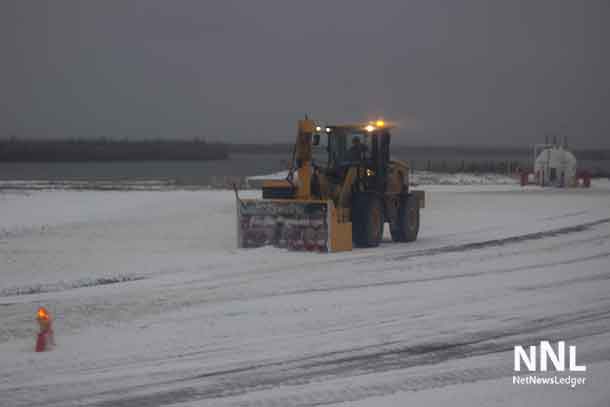
Keeping the runways clear of ice, and snow presents challenges, which are well met by the MTO operators for the airports across Northern Ontario.
The challenge facing northern communities this winter is the earlier snowfalls have come before extended periods of colder weather. It is suspected that these conditions could conspire to make the winter road season a greater challenge, and further restrict weight limits for trucks on the winter roads.
That places increased pressure on the air travel as a vital transportation link for food, building supplies, and other necessary goods which are needed in the north. The ever present challenges faced in the north by climate change are presenting communities with greater costs and forcing increased efficiencies to survive.



